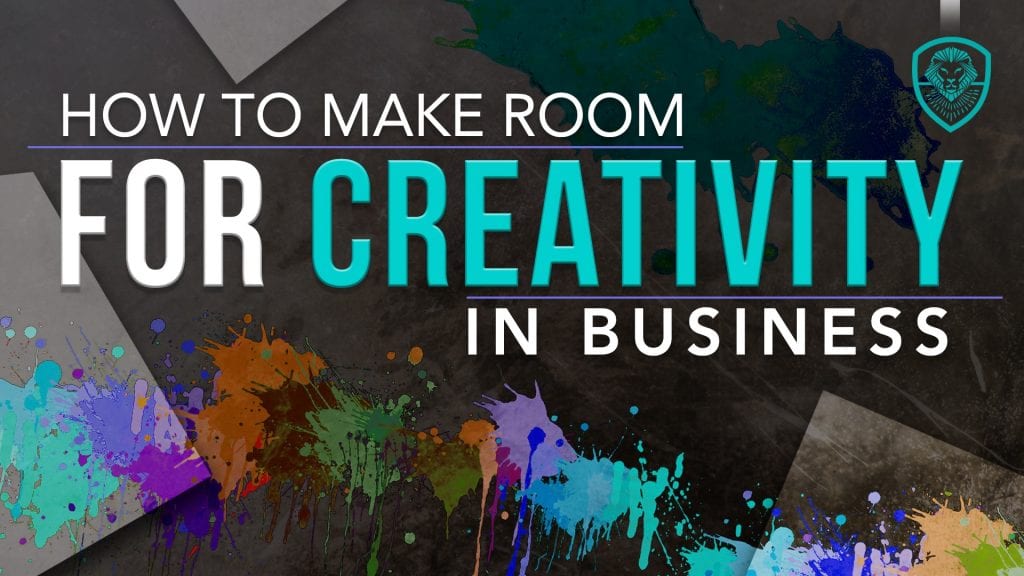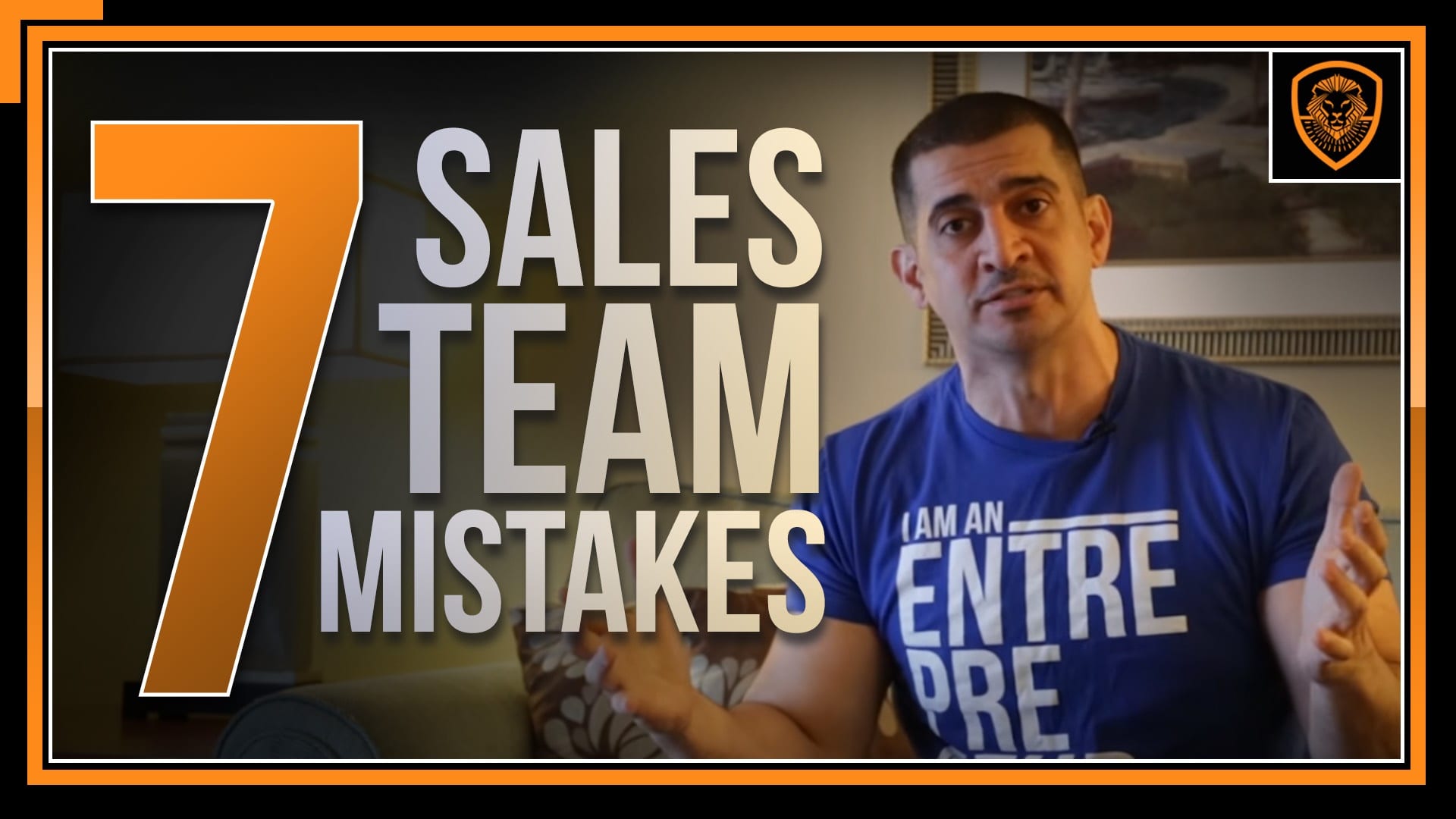 This article is by Rebecca Livermore. Rebecca is the content manager here at PatrickBetDavid.com and the owner of Professional Content Creation. She invites you to connect with her on LinkedIn.
This article is by Rebecca Livermore. Rebecca is the content manager here at PatrickBetDavid.com and the owner of Professional Content Creation. She invites you to connect with her on LinkedIn.
Creativity in business manifests itself in many different ways. You can see it in ways we traditionally see as creative such as art and other forms of beauty, as ideas for inventions or new twists on old products, or creative solutions to problems. A problem when it comes to creativity in business is that entrepreneurs have a tendency not to make room for it.

It’s not unusual for creativity to manifest itself in times of stillness, or when you aren’t even thinking about it. If you’ve ever come up with a great idea in the shower or on a jog, you know what I mean. The problem is, unless you’re intentional about making room for creativity in business, you may never know what great ideas were right beneath the surface but never made it to the top.
In this article, I provide six tips for making room for creativity in business.
#1: Take a Vacation and Encourage Your Team to Do the Same
I know a lot of entrepreneurs that haven't gone on a real vacation for years. Some may claim to go on vacation but constantly get on the phone and email, and never really unplug during their time away. They may even send family members off to have fun while they stay back in the hotel room to work.
While hard work ethic is certainly an important aspect of running a successful business, so can getting away from it all from time to time. The article Why You Must Abandon Your Business published on Inc.com provides three reasons why taking a vacation is important. The one that stood out to me the most is summed up in this quote:
Distance and time have a special way of clearing up confusions, and spotlighting the best choices.
How to Get Your Employees to Take a Vacation So They Don't Burn Out
If you've ever experienced burnout, you know that during those times, creativity is at an all-time low. Many even experience extreme hopelessness because they can't see any solutions to the problems they're facing. When your team members' performance begins to wane, when they start making more mistakes, have less enthusiasm, and no longer come up with great ideas, it could just be that they need a vacation.
According to this article on Entrepreneur.com, "American workers left a stunning 658 million vacation days unused in 2015" and of those who went on vacation, 41% admit to working while on vacation.
Often the best employees are the ones who are reluctant to take a real vacation, but the result of that mindset can impact their long-term performance:
When the team is small and each quarter’s results are make-or-break for the company, it never feels like a good time to step away. But commitment to work may actually be hurting employee performance and burning out good employees.
Part of the problem is that many employees heed an unwritten rule that states that to really make it in the company, you have to sacrifice things like vacation time to prove your worth, to be valued, and to climb the ladder.
The go-go-go culture of startups can establish unwritten policies that are more powerful than the official ones.
The official policy may provide ample time off, but the unwritten policy may make team members reluctant to follow what's in the official policy.
So what's a CEO to do about it?
Often, it takes a strategic focus to encourage employees to take time off to relax, recalibrate and refocus.
In addition to the above, the article 5 Ways to Persuade Employees to Take Vacation Before They Burnout gives the following five tips:
#1: Practice what you preach.
#2: Learn employee strengths and weaknesses.
#3: Schedule around life.
#4: Change the terms you use.
#5: Announce a surprise holiday.
You can read the entire article here.
#2: Reduce Hours
I'm sure many of you reading this may long to make room for creativity in business but fear that doing so will result in lost revenue. Is that so? Maybe. Maybe not.
There's something to be said for putting in long hours. How can you expect to make it in business if you don't work like crazy? There definitely can be a correlation between the number of hours worked, and the amount of revenue a company brings in. As this article and video published right here on PatrickBetDavid.com states, the way to become a millionaire is to be an "all-the-timer," working 80+ hours per week.
The article, What a 30-Hour Work Week is Really Like presents the other side of the coin giving examples of businesses that prospered when they reduced the days they were open, with some bringing in more revenue as a result of closing for months at a time. Some companies such as Amazon are testing 30-hour work weeks for some of their tech employees.
A keyword in that last sentence is "testing." In some cases, testing may indicate that the more hours worked, the more money the company makes. In other situations you may find that shutting down on certain days of the week or even months of the year may result in making more rather than less income.
#3: Create Every Day
If you want to make room for creativity in business, it's not enough to work less. It's also important to use down time well. This article published on Inc.com covers the importance of creating every single day, without fail.
The idea of creating something every single day, day in and day out can be rather daunting. This additional article provides one tip that I believe is particularly useful in this regard and that is one of having small daily habits.
I love this quote from the article:
Big leaps happen by adding lots of tiny steps up over a long period of time.
The idea of tiny habits is a great one, especially if you're trying to implement the idea of creating something every day. This is an effective strategy because a big part of developing a habit is to do it consistently, and if the habit takes too much time, you may not do it for long.
#4: Make a Bigger Box
You have no doubt heard of people talking about thinking outside of the box as a way of being creative. But one of the points in this article published on Addicted2Success turns this common advice on its head. It states, "Don't think outside the box, expand it."
The idea here is that there's often no reason to reinvent the wheel. Instead, choose to make an existing idea or product better by expanding it. You can read the entire article, 3 Ways to Nurture Creativity in the Workplace here.
#5: Embrace the Superpower Elements of Boredom
When I first saw the headline of this article, Why Boredom Is the Superpower of the 21st Century, I couldn't imagine how there could be anything powerful about being bored. But after reading the article, I have to admit that I'm intrigued -- not that I've had time yet to try it out.
Here are a few points that the article makes:
Most people also think that boredom is at odds with creativity. In my estimation, nothing could be further from the truth.
In the article the writer shares about his experience in a "sensory deprivation tank," which is essentially a tank filled with body temperature water with such a high salt content that you float, without any effort. For the first 30 minutes, his mind won't shut up, which is terribly annoying. But then, something interesting happens:
But, after some time, a creeping sensation of calm sets in and you realize that no matter what, you have to remain in the tank. Then, the ideas start to pour in. An avalanche of ideas. A non-stop suffocating flow of material comes at you from every direction.
This writer also enhances his creativity by writing every single day, even when he doesn't feel like it and has nothing to say. In the midst of doing that incredibly boring activity, he unleashes his creativity.
I'm still pondering this one. I have to admit out of all of the ideas presented in the articles I've linked to today, this is the hardest one to accept. But I'm intrigued. Perhaps you will be as well when you read the article.
#6: Increase Flexibility
Sometimes one of the ways to boost employee creativity is to offer more flexibility. While some team members may be more creative in a traditional office setting, others find coffee shops, co-working spaces, home, or even the great outdoors to be more conducive to both creativity -- and productivity - than a traditional office.
But many CEOs are nervous to offer team members a lot of flexibility, due to these and other myths:
1. Employees will goof off.
Myth: The image of employees at home, chasing children, playing video games and catching Pokemon in the middle of the day scares employers out of office flexibility.
Fact: Offices are full of distractions -- like colleagues who constantly interrupt others' work, frequent meetings and a physically uncomfortable work environment.
To deal with this fear, focus on outcomes, such as the completion of specific tasks.
2. Communication will suffer.
Myth: If people aren't together in the same office, there will be a lack of communication.
Fact: Technology makes it easy to communicate well even when team members are located around the world.
3. There'll be a lack of teamwork.
Myth: Teamwork happens as a result of meeting up in the conference room.
Fact: A lack of physical presence doesn't impact teamwork. There can be a lot of teamwork even if people seldom or never meet in person
You can read the rest of the article including the other two points here.
Also check out this article and video from our archives on how to increase creativity in business:
Your Turn
What are your tips for increasing creativity in business? Share your ideas in the comments below.






